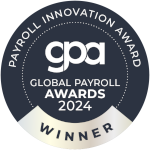
The UK hospitality Industry has over 150,000 businesses where tipping is customary with tipping levels on average worth 12.5% of the total bill. This equates to around £11billion in tips is paid by customers, a substantial sum with the potential to increase the employees disposable income with.
There are many different ways employers distribute tips from pooled tips to payments through their payrolls. Although not uncommon for employers to pay tips through their payroll, this is actually the most tax inefficient method of distributing the tips as National Insurance Contributions (NICs) are paid by both the employee and employer. In effect, both sides lose out!
Employees can see a significant drop in the amount of the tips they actually receive because of the 12% NI paid on them. For employers the 13.8% Employers NI is an additional cost that does not need to be made if they manage their tips in a very specific way.
This is where a tronc scheme comes in.
A tronc scheme or arrangement is an organised agreement within a hospitality business to pool and share tips and gratuities. The scheme is managed by a troncmaster who could be an employee or independent body. They cannot be the business owner or anyone who could influences how the business is run, such as a company director.
The efficiencies of a tronc scheme
The benefit of paying through a correctly run Tronc scheme are:
- A transparent distribution of the tips to the employees with a say in how the tips are distributed.
- A Tronc scheme with an appointed Troncmaster is independent of the employer and the scheme works for the benefit of the workers not the business.
- Income Tax is, and always is, payable on tips, however correctly allocated tips through a Troncmaster do not attract NIC, a saving of 12% for the employees and 13.8% for the employer.
With a total saving of over 25% that represents £2.8billion of tips that would go to the Government rather than the employees pocket.
A happy employer and happy employees!!
